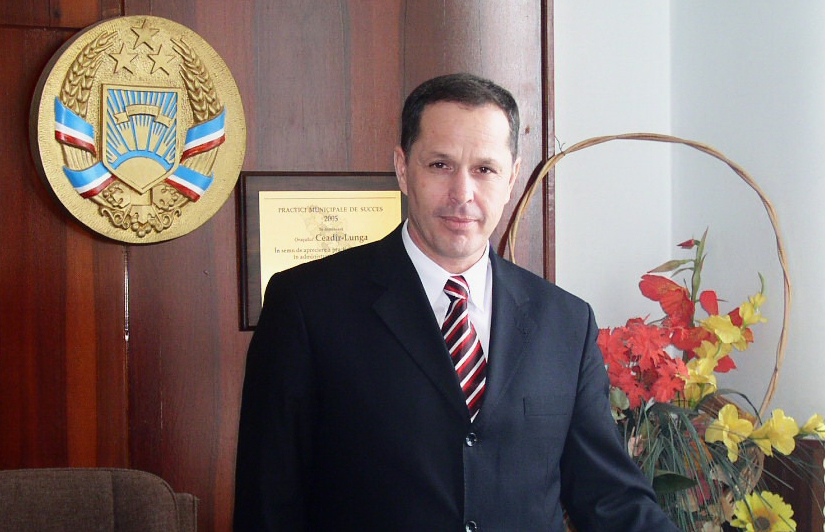
Moldovan Sovereignty and Gagauz Autonomy: A Balance Vulnerable to Moscow’s Mischief
Publication: Eurasia Daily Monitor Volume: 10 Issue: 139
By:

From 1990 until 1994, Moldova faced two secessionist, Russia-oriented “republics” on its territory: Transnistria and Gagauzia. The autonomy settlement, negotiated by Chisinau with the Gagauz in 1994, retrieved Moldova’s southern territory that had at that stage been practically lost. It also succeeded in de-coupling the Gagauz-inhabited area, physically and politically, from Transnistria.
The twin issues of Moldovan sovereignty and Gagauz self-government in that territory are thereby settled, though not beyond challenge (see EDM, July 26). The matter of Gagauz political allegiance to Moldova, however, remains in play and calls for greater tact on all sides today than at any time since 1994.
With the upcoming conclusion of Moldova–European Union association agreements, Moldova will exit decisively and irrevocably from the “Russian World.” At this juncture, Russia is orchestrating unprecedented counter-measures within Moldova. It seeks to re-activate the orientation toward the “Russian World,” in forms old and new (Eurasianism, Customs Union), by reaching out to Moldova’s Communists, to local elements of the Russian Orthodox Church, and to Russophone ethnic communities.
In this context, Moscow can be expected to play on the traditional loyalty to the Russian Empire and the Soviet Union among the Christian Russophone Gagauz. That sentiment, however, must have receded significantly since 1994, and is now balanced to some extent by Gagauz interest in kindred Turkey, although scarcely noticed in Ankara (see EDM, April 2). None of those processes translate into positive, active Gagauz identification with Moldova.
The Russian language heavily dominates all spheres of public life and the schools in the Gagauz autonomy. Its authorities lack sufficient motivation to switch at least some parts of the education system to Turkish, and certainly lack the funding for this. For its part, Chisinau is very cautious about introducing Moldovan schools in this territory. It is content with Moldovan classes in Russian-language schools. Chisinau also carefully refrains from attempting to change Russian/Soviet street and square names, which remain pervasive in the Gagauz autonomy.
Overall, the Gagauz community’s self-identification in its present form does not provide a basis for political or civic allegiance to Moldova. The autonomy status provides the basis for acceptance of Moldovan sovereignty. However, Moldova lacks the resources to strengthen that basis through economic development projects.
Gagauz authorities, notably the autonomy’s head, Bashkan Mihail Formuzal, agree that wider knowledge of the “Moldovan” state language (alongside Russian) would be useful, but very little is done in that regard amid fiscal and political constraints. Pressure for change is nonexistent because the Russian language holds social prestige while “Moldovan” does not. This socio-linguistic pecking order inherited from Soviet times can also be observed in several other enclaves within Moldova.
While Russophone by choice and default, the Gagauz leadership claims to fear cultural “Romanian-ization” of Moldova, which, if allowed to proceed, would allegedly enable Romania to take over Moldova. Accordingly, Gagauz leaders successfully oppose the use of textbooks on Romanian history and other Romania-related subjects in local schools, while such textbooks are used in the rest of Moldova. In 2012, when an obscure youth group staged Romanian-irredentist demonstrations in several Moldovan towns (outside the Gagauz territory), Bashkan Formuzal sounded the alarm and personally travelled a long way to join a Russophone counter-demonstration (TOL, August 16, 2012).
Gagauz political figures tend to equate allegiance to Moldova with resisting Romanian influence (an attitude they share with Moldova’s Communist Party). Again, this forms only a narrow basis for any solid political identification with the Moldovan state.
The incumbent Gagauz leadership under Formuzal is basically loyal to Chisinau, albeit on terms partly defined by Comrat, the autonomous region’s administrative center. Those terms include leeway for Comrat to undertake some foreign policy initiatives. Such initiatives occur from time to time, without continuity; are improvised rather than planned; and have targeted only Russia and Turkey thus far.
In the most recent example, Formuzal made a speech to an “international,” Russian-sponsored conference in Moldova’s Russophone-majority city of Balti, on the subject of “Development perspectives of Moldova’s regions through cooperation in the framework of the [Russia-led] Customs Union.” The bashkan cited agreements signed as well as planned by Comrat with several territorial entities (“subjects”) of the Russian Federation for economic and cultural assistance to the Gagauz. Although (as he acknowledged) Moldova would not join that Customs Union, agreements signed by certain Moldovan administrative-territorial entities with Russian counterpart entities could bring Moldova closer to that Customs Union and its member countries, Formuzal stated (Regnum, July 2). A similar conference was recently hosted in the People’s Assembly (Gagauz legislature) in Comrat (Regnum, July 22).
Prior to that, Formuzal had addressed an international conference in Istanbul where he characterized the Gagauz as attracted by two cultures, the Russian and the Turkish. Pessimistic about development prospects in Moldova for his people, he called for Russia and Turkey jointly to guarantee the future of the Gagauz people. Apparently impressed by Azerbaijan’s recently demonstrated investment prowess, Formuzal suggested a possible role for Azerbaijan in such a protectorate in the future (see EDM, March 19, April 2; Ziarul de Garda, July 3, 9, citing Regnum).
Ankara’s interest toward this Turkic but Christian people has actually declined during the decade of AKP rule in Turkey. Back in the 1990s Turkey contributed significantly to political stabilization in the Gagauz territory. Then-President Suleyman Demirel paid a high-profile visit there during which he endorsed the autonomy settlement, recommended loyalty to the Moldovan state, and rebutted assertions that Moldova was oppressing the Gagauz people. Some Turkish economic and cultural assistance materialized, albeit at modest levels, in subsequent years: a drinking water project in some villages, an “Ataturk Library” in Comrat, some funding for Turkish-language classes in Gagauz schools, a few scholarships for Gagauz students in Turkey. Ultimately, this assistance has not made a significant difference on development or education, and has stagnated since then.
At this time, Russia disposes of stronger cards, compared with those of a disengaged Turkey, if Moscow decides to play its cards. They include the common language, common religion, unrivalled media impact, and the perceived lure of its economic strength. From Moldova’s standpoint, a more active Turkish economic and cultural assistance to the Gagauz would be infinitely preferable to Russian involvement. Turkish-language education could help revive the Gagauz identity, which continues to be deeply submerged by linguistic Russification, even as Moldova is about to exit from the “Russian World” for good.
The European Union’s cards are potentially the strongest by far, although the EU would of course deny any intention to compete against Russia over Moldova. Bashkan Formuzal is liaising with EU representatives and is receptive to their inputs. Although Gagauz internal politics are factionalized, Formuzal is the center of gravity there and the only effective policymaking authority. He is basically loyal to Moldova within the parameters of the autonomy status. However, radicals can outflank him, or pull him along, if Transnistria receives “republic” or similar status in a “federalized” Moldova. In that case, Formuzal has repeatedly cautioned, the Gagauz would demand equivalent status. In Chisinau, the Communist Party is suddenly urging a “republic” status for Transnistria, playing into Moscow’s and the Gagauz radicals’ hands.
The current situation demands closer attention to Gagauz issues on the part of the EU’s mission in Moldova. But, first, it requires more active outreach from Chisinau to Comrat, and sensitive handling of these issues by all components of Moldova’s coalition government.




